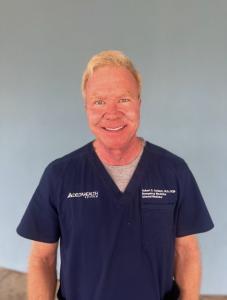Understanding the Roles: Dr. Robert Corkern Explains Emergency Medicine vs. Internal Medicine
Understanding the Roles: Dr. Robert Corkern Explains Emergency Medicine vs. Internal Medicine
Blog Article

In regards to healthcare, many individuals frequently confuse crisis medication with central medicine. Equally are crucial offices of medicine, however they offer different roles in individual care. Dr Robert Corkern Mississippi, a famous medical specialist, explains the main element differences between both of these specialties, shedding gentle on their particular focuses and how each contributes to patient health. Understanding the difference between disaster medicine and inner medication can help people greater navigate their healthcare wants and produce knowledgeable decisions.
The Concentration of Disaster Medication
Emergency medicine was created to provide immediate, acute care for individuals experiencing urgent or lethal conditions. Crisis physicians perform in hospitals' disaster sections (EDs), where they are often the first point of contact for individuals encountering extreme incidents, shots, center attacks, or other medical emergencies. Dr. Corkern highlights that emergency medicine is focused on stabilization and rapid decision-making. Emergency physicians are trained to deal with a wide variety of medical situations, often with out a detailed medical record of the patient, and must produce rapid judgments predicated on restricted information.
The primary purpose of disaster medication is to prevent further hurt, stabilize the in-patient, and start the correct interventions. From stress care to handling center problems or strokes, disaster physicians are specialists in controlling acute signs and providing life-saving remedies in high-pressure environments.
The Role of Internal Medicine
In contrast, central medicine centers on detecting and handling persistent disorders and conditions that influence people, such as diabetes, hypertension, and center disease. Internal medicine specialists, or internists, use individuals over an extended time, giving detailed care and avoidance strategies. Dr. Corkern explains that internal medicine is primarily focused on the whole-body administration of non-emergency medical issues. Internists often function as primary care health practitioners, handling routine check-ups, handling continuing remedies, and managing care for individuals with complex, long-term wellness issues.
While disaster physicians treat quick considerations, internists take a more holistic and long-term way of patient health. They frequently perform directly with specialists in parts like cardiology, pulmonology, and nephrology to manage chronic problems and ensure that people receive matched look after multiple wellness concerns.
Instruction and Approach to Care
Dr. Corkern shows the variations in working out required for both fields. Disaster medication needs physicians to be equipped for a wide spectral range of situations that could require quick, life-saving interventions. Disaster doctors are trained to handle injury, critical infection, and intense exacerbations of serious conditions. That instruction requires a heavy give attention to intense attention and sophisticated life-saving techniques, frequently in high-stress environments.
On the other give, central medication physicians undergo intensive education in the prevention, diagnosis, and treatment of serious conditions. They focus on giving long-term attention, frequently handling a patient's medical record and coordinating with different specialists. The internist's approach is patient-centered, with a focus on long-term health preservation and illness prevention.
When to Seek Emergency Medication or Inner Medication
Knowing when to get emergency medicine versus inner medication can make all of the difference in the pace and kind of attention someone receives. If you're experiencing a medical emergency, such as significant chest suffering, problem breathing, or sudden lack of consciousness, the er is the best spot to go. But, for continuing medical issues, persistent condition administration, or general health preservation, an internal medication consultant is typically the most effective position of contact.
Conclusion:
Equally emergency medicine and internal medication perform critical functions in patient attention, but their approaches, focus areas, and training vary significantly. Dr Robert Corkern's reason provides clarity on how these specialties function and when each is most relevant. By understanding the distinctions, patients can better steer their healthcare needs and guarantee they are seeking the right type of attention at the proper time. Whether facing a crisis or controlling a serious problem, equally specialists are built-in in sustaining and improving health.
Report this page